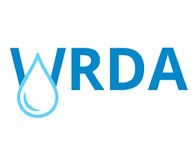Law Seminar Provides Fountain of Legal Knowledge
 Over 130 people attended NACWA’s 2016 National Clean Water Law Seminar last week in the City of Fountains - Kansas City, Missouri. The Seminar program spanned a wide range of critical legal and regulatory issues impacting clean water utilities. It featured top clean water attorneys and professionals as speakers who provided valuable analysis and insights on municipal wastewater and stormwater issues.
Over 130 people attended NACWA’s 2016 National Clean Water Law Seminar last week in the City of Fountains - Kansas City, Missouri. The Seminar program spanned a wide range of critical legal and regulatory issues impacting clean water utilities. It featured top clean water attorneys and professionals as speakers who provided valuable analysis and insights on municipal wastewater and stormwater issues.
Avi Garbow, EPA General Counsel, keynoted this year's Seminar with a presentation on EPA and Clean Water Legal Issues: Today and Tomorrow. Garbow discussed the challenges the Nation’s water systems face, particularly in light of limited resources and the threatening impacts of climate change. He highlighted recent Agency accomplishments and upcoming priorities including infrastructure financing, improving industry transparency, and adaptation planning. Garbow also talked about the deterioration of stakeholder relationships between the regulatory and regulated communities, noting that lawyers have a special responsibility to make sure there is a degree of mutual respect.
Alexandra Dunn, Executive Director & General Counsel of the Environmental Council of the States (ECOS), provided a powerful luncheon address on a transformative business model for environmental protection, E-Enterprise for the Environment and Clean Water 4.0, and the anticipated benefits to clean water agencies.
One of the most popular events of the Seminar - Top Clean Water Act (CWA) Developments of the Year - reviewed the most important court decisions and CWA legal developments of the past year and how these issues could affect utilities. The Seminar also included a half day of primers on the Clean Water Act, Stormwater, and Administrative Law. Other highlights of the conference included panel discussions, roundtables and presentations on nutrients; sovereign immunity; state NPDES permitting issues; EPA’s expanding role and the CWA’s expanding jurisdiction; innovating for the 21st Century; and strategies to avoid and defend against citizen suits.
Presentations from the Seminar are available on NACWA’s website. NACWA thanks all of the participants and sponsors from this year’s conference – NACWA looks forward to another great event next year!
Consent Decree Workshop Offers Insider’s View on Enforcement & Implementation
 Following the successful National Clean Water Law Seminar, NACWA held its annual Consent Decree Workshop on November 3 – 4. The event shifted focus to clean water enforcement, negotiation, and implementation and featured top speakers from the field of consent decree negotiation and implementation. The audience of over 100 clean water professionals, on the front lines of wet weather enforcement challenges, gathered in a candid forum to share tips for renegotiating existing decrees or negotiate new decrees, best practices for implementation, and perspectives on setting and arriving at the right goals for an individual community.
Following the successful National Clean Water Law Seminar, NACWA held its annual Consent Decree Workshop on November 3 – 4. The event shifted focus to clean water enforcement, negotiation, and implementation and featured top speakers from the field of consent decree negotiation and implementation. The audience of over 100 clean water professionals, on the front lines of wet weather enforcement challenges, gathered in a candid forum to share tips for renegotiating existing decrees or negotiate new decrees, best practices for implementation, and perspectives on setting and arriving at the right goals for an individual community.
The Workshop kicked off with a panel focused on updates and case studies on recent trends in enforcement and consent decrees, followed by roundtable sessions that allowed participants to engage in candid discussions from the frontlines of consent decree negotiation and implementation. A highlight of this year’s Workshop was the panel of current and former EPA staff who shared their perspectives on enforcement, including insights on how regulators approach negotiations and modifications, and what kinds of approaches they find most and least effective.
Workshop participants also received an early access copy of NACWA’s 2016 edition of the Consent Decree Handbook. A wide release version of the updated Handbook will be available on NACWA’s website soon. Presentations from the Workshop are available now.
New Stormwater Legal Whitepaper Released
 NACWA is pleased to release the 2016 Edition of Legal Considerations for Enacting, Implementing, and Funding Municipal Stormwater Programs: Navigating Litigation Floodwaters. This invaluable resource provides analysis on the types of legal issues impacting stormwater programs and presents an overview of trends that are emerging based on the outcomes of key cases.
NACWA is pleased to release the 2016 Edition of Legal Considerations for Enacting, Implementing, and Funding Municipal Stormwater Programs: Navigating Litigation Floodwaters. This invaluable resource provides analysis on the types of legal issues impacting stormwater programs and presents an overview of trends that are emerging based on the outcomes of key cases.
When opposition to a fee program reaches the courts, there is always the potential that a program or fee could be struck down, leaving a utility in the position of being legally responsible to comply with the Clean Water Act (CWA) yet unable to administer or fund the program. As such, it is imperative that stormwater utilities do their “legal homework” – including all relevant laws and previous cases on point in their respective state – to ensure the best chance of success for a fee program. NACWA’s Legal Considerations analysis will help utilities engage in this effort by equipping members with critical knowledge and tools to inform and prepare utilities that are creating, implementing or defending a stormwater program, utility or fee. The white paper is a complimentary benefit of membership for NACWA members.
WRDA Advocacy Heats Up
 The Great Lakes Task Force sent a bipartisan letter Nov. 2 to House and Senate leaders encouraging the inclusion of key provisions that benefit the Great Lakes in any final 2016 Water Resource Development Act (WRDA). A total of 31 Members of Congress from both parties and all eight Great Lakes states signed the letter, which outlines a list of WRDA asks – including several NACWA priorities like sewer overflow control grants, additional assistance for small and disadvantaged communities, and promotion of green infrastructure. The letter helps demonstrate bipartisan House support for reconciling a final WRDA package with key clean and safe water provisions.
The Great Lakes Task Force sent a bipartisan letter Nov. 2 to House and Senate leaders encouraging the inclusion of key provisions that benefit the Great Lakes in any final 2016 Water Resource Development Act (WRDA). A total of 31 Members of Congress from both parties and all eight Great Lakes states signed the letter, which outlines a list of WRDA asks – including several NACWA priorities like sewer overflow control grants, additional assistance for small and disadvantaged communities, and promotion of green infrastructure. The letter helps demonstrate bipartisan House support for reconciling a final WRDA package with key clean and safe water provisions.
Also last week, NACWA continued its WRDA advocacy on Capitol Hill. Getting a reconciled 2016 WRDA across the finish line with clean water reforms and investments will require calls and letters of support from clean water agencies to their Members of Congress. We urge all Members to get engaged this week. Resources are available on NACWA’s website. Please contact
Pat SinicropiThis e-mail address is being protected from spambots. You need JavaScript enabled to view it
, Senior Director of Legislative Affairs or
Kristina SurfusThis e-mail address is being protected from spambots. You need JavaScript enabled to view it
, Legislative Affairs Manager, with any questions.
Region 7 Meeting Addresses Affordability, Integrated Planning
 Over 20 municipal clean water professionals from Missouri, Kansas, and Nebraska gathered in Kansas City on November 3 to discuss a variety of challenges facing clean water agencies in EPA Region 7. The meeting, held in conjunction with NACWA’s National Clean Water Law Seminar and Consent Decree Workshop (see related story), was jointly hosted by the Association and Member Agency Kansas City Water Services.
Over 20 municipal clean water professionals from Missouri, Kansas, and Nebraska gathered in Kansas City on November 3 to discuss a variety of challenges facing clean water agencies in EPA Region 7. The meeting, held in conjunction with NACWA’s National Clean Water Law Seminar and Consent Decree Workshop (see related story), was jointly hosted by the Association and Member Agency Kansas City Water Services.
The meeting covered a variety of topics, with a particular focus on affordability. A number of utilities highlighted the challenges they face in funding needed infrastructure investments while at the same time not overburdening low income households. There was also robust conversation around how the clean water community should address affordability issues and discuss them with regulators. The meeting additionally included an examination of how integrated planning approaches are being used across the Region, as well as explored topics such as nutrients, stormwater, and utility succession planning.
NACWA is always excited to facilitate meetings at the state or regional level around the country to hear more directly from utilities about the challenges they confront on a daily basis. If your utility would be interested in partnering with NACWA to host such an event, please contact
Brenna MannionThis e-mail address is being protected from spambots. You need JavaScript enabled to view it
, Director of Regulatory Affairs & Outreach, for more information.
EPA Letter, Webinars Prepare Clean Water Community for Massive Survey
 In advance of sending a screener survey to all publicly owned treatment works (POTWs) in the U.S., EPA sent a letter to all 15,000+ potential recipients explaining the purpose of the study and why the Agency believes it is necessary to conduct it via Section 308 of the Clean Water Act. NACWA has been carefully tracking EPA’s efforts on the planned study of nutrient removal and secondary treatment technologies, including the Agency’s development of the initial screener survey – the first stage of the multi-year study. EPA hopes that the study will establish a nationwide baseline for nutrient removal at POTWs and characterize low-cost options, such as operation and management practices, that can result in improved nutrient control. In addition to the letter, EPA hosted the first two of four planned webinars last week to provide background on the study. The webinars will also focus on demonstrating the content and electronic format of the draft questionnaire. The next webinars will take place on November 10, 2016, at 10:00 am – 11:30 am and 2:00 pm – 3:30 pm Eastern Time. Attendees must register in advance, and EPA has indicated that space is limited. Registration for the webinars, a draft of the questionnaire, and more information on the study can be found at the study’s website.
In advance of sending a screener survey to all publicly owned treatment works (POTWs) in the U.S., EPA sent a letter to all 15,000+ potential recipients explaining the purpose of the study and why the Agency believes it is necessary to conduct it via Section 308 of the Clean Water Act. NACWA has been carefully tracking EPA’s efforts on the planned study of nutrient removal and secondary treatment technologies, including the Agency’s development of the initial screener survey – the first stage of the multi-year study. EPA hopes that the study will establish a nationwide baseline for nutrient removal at POTWs and characterize low-cost options, such as operation and management practices, that can result in improved nutrient control. In addition to the letter, EPA hosted the first two of four planned webinars last week to provide background on the study. The webinars will also focus on demonstrating the content and electronic format of the draft questionnaire. The next webinars will take place on November 10, 2016, at 10:00 am – 11:30 am and 2:00 pm – 3:30 pm Eastern Time. Attendees must register in advance, and EPA has indicated that space is limited. Registration for the webinars, a draft of the questionnaire, and more information on the study can be found at the study’s website.
Water Sector Prepares to Update Security & Resilience Roadmap
 The Water Sector Coordinating Council (WSCC), which oversees utility partnership with federal agencies on matters related to security and emergency preparedness, held its quarterly meeting in Arlington, TX, November 2 – 3. The meeting was hosted by NACWA Member Agency, the Trinity River Authority (TRA), and was the final meeting as Chair for former NACWA Board Member Patty Cleveland, one of the Association’s representatives to the WSCC and Assistant Regional Manager with TRA. Jonathan Reeves, Manager of the Office of Emergency Management for NACWA Member Agency DC Water, was elected as the next Chair of the WSCC. Reeves represents the Water Environment Federation (WEF) on the Council.
The Water Sector Coordinating Council (WSCC), which oversees utility partnership with federal agencies on matters related to security and emergency preparedness, held its quarterly meeting in Arlington, TX, November 2 – 3. The meeting was hosted by NACWA Member Agency, the Trinity River Authority (TRA), and was the final meeting as Chair for former NACWA Board Member Patty Cleveland, one of the Association’s representatives to the WSCC and Assistant Regional Manager with TRA. Jonathan Reeves, Manager of the Office of Emergency Management for NACWA Member Agency DC Water, was elected as the next Chair of the WSCC. Reeves represents the Water Environment Federation (WEF) on the Council.
The Water Sector Government Coordinating Council (GCC) joined the WSCC on November 3. The joint meeting included discussions with Peter Grevatt, Director of EPA’s Office of Groundwater & Drinking Water, and Robert Kolasky, Deputy Assistant Secretary for the Office of Infrastructure Protection in the Department of Homeland Security (DHS).
The WSCC discussed plans for updating the Roadmap to a Secure & Resilient Water Sector, a document that serves as a guide for work that can be performed by government agencies and the water sector associations to improve the security of drinking water and wastewater utilities. The WSCC and GCC discussed how some of the recommendations from the National Infrastructure Advisory Council’s (NIAC) report on water sector resilience, which NACWA played a key role in developing, could potentially be incorporated into the Roadmap.
NACWA congratulates and thanks Patty Cleveland for her leadership of the WSCC during the last two years.
Dialogue Examines Market-Based Stormwater Management
 NACWA attended the National Network on Water Quality Trading's (NNWQT) Fall Dialogue - Market-Based Stormwater Management, held last week in Washington, DC. Conservation, development, economic, regulator, and stormwater professionals came together to define a possible road map for using economic instruments in stormwater management programs.
NACWA attended the National Network on Water Quality Trading's (NNWQT) Fall Dialogue - Market-Based Stormwater Management, held last week in Washington, DC. Conservation, development, economic, regulator, and stormwater professionals came together to define a possible road map for using economic instruments in stormwater management programs.
Various types of these programs, both incentive and/or market-based, were discussed during the meeting. NACWA Member Agency Austin, Texas, serves as an example of an incentive program. The City will provide up to $500 (based on the amount of impervious cover) to install different types of low impact development and green infrastructure onsite. Another well-known stormwater market-based initiative is the Washington, D.C. Stormwater Retention Credit program, where the District’s Department of Energy & Environment uses both a trading mechanism in addition to a credit/rebate program to drive investment in stormwater best management practices.
The NNWQT is coordinated by the Willamette Partnership and has received funding from the U.S. Department of Agriculture and the Electric Power Research Institute to explore opportunities and advance opportunities around water quality trading. NACWA is actively engaged in the NNWQT to bring the perspective of municipal clean water utilities to the Network and participates on its Steering Committee. Members interest in additional information about this meeting or the NNWQT should contact
Brenna MannionThis e-mail address is being protected from spambots. You need JavaScript enabled to view it
, NACWA’s Director of Regulatory Affairs & Outreach.
Water Associations Deliver Energy-Water White Paper to DOE
 A broad array of water sector associations delivered a white paper, The Energy Water Nexus: A Plan for Collaboration Between the Department of Energy and Water Sector, to the Secretary of the Department of Energy (DOE), Ernest Moniz, on November 1. The paper follows up on a September 7 meeting with the associations and Secretary Moniz to discuss greater integration between the water and energy sectors and the priorities of the water sector related to energy. Successful DOE-water sector collaborations, opportunities and challenges for the water sector, and a plan of action moving forward into the next Administration are outlined in the paper.
A broad array of water sector associations delivered a white paper, The Energy Water Nexus: A Plan for Collaboration Between the Department of Energy and Water Sector, to the Secretary of the Department of Energy (DOE), Ernest Moniz, on November 1. The paper follows up on a September 7 meeting with the associations and Secretary Moniz to discuss greater integration between the water and energy sectors and the priorities of the water sector related to energy. Successful DOE-water sector collaborations, opportunities and challenges for the water sector, and a plan of action moving forward into the next Administration are outlined in the paper.
The Water Research Foundation (WRF) took the lead in drafting the paper, and was joined by NACWA, the Water Environment & Reuse Foundation (WE&RF), the Water Environment Federation (WEF), the Association of Metropolitan Water Agencies (AMWA), the American Water Works Association (AWWA), the National Association of Water Companies (NAWC), and the U.S. Water Alliance. NACWA will continue to advocate for the energy priorities of its Member Agencies into the next Administration.
EPA to Host Disaster Recovery & Resilience Mitigation Webinars
 EPA will be hosting two free webinars on November 22 and December 7 for drinking water and clean water utilities to learn more about financing recovery and resilience mitigation related to significant natural disaster events. Communities are facing an increasing need to prepare for disasters and mitigate impacts to their water and wastewater infrastructure. With the emerging challenges of stronger and more frequent storms, droughts, and floods, the costs to respond are rising. These webinars will describe how communities can use different financing approaches to recover from disaster, and also explore how utilities can use various tools and resources to plan for and mitigate disasters before they strike.
EPA will be hosting two free webinars on November 22 and December 7 for drinking water and clean water utilities to learn more about financing recovery and resilience mitigation related to significant natural disaster events. Communities are facing an increasing need to prepare for disasters and mitigate impacts to their water and wastewater infrastructure. With the emerging challenges of stronger and more frequent storms, droughts, and floods, the costs to respond are rising. These webinars will describe how communities can use different financing approaches to recover from disaster, and also explore how utilities can use various tools and resources to plan for and mitigate disasters before they strike.
Urban Waters Grant Opportunity Announced
 The interagency Urban Waters program issued its 2017 request for proposals (RFP) on November 2 for the Five Star and Urban Waters Restoration Grant program. A November 15 webinar is scheduled for communities to learn about the application process.
The interagency Urban Waters program issued its 2017 request for proposals (RFP) on November 2 for the Five Star and Urban Waters Restoration Grant program. A November 15 webinar is scheduled for communities to learn about the application process.
This grant program seeks to develop community capacity to sustain local natural resources for future generations by providing modest financial assistance to diverse local partnerships focused on improving water quality, watersheds and the species and habitats they support. NACWA has helped advocate for the Urban Waters program through the Associations’ participation in the Sustainable Urban Forestry Coalition. More information on the program and the webinar is available online. Approximately $2.5 million is available in grants nationwide under this RFP. Proposals are due by January 31, 2017.
- Calling all NACWA Affiliates! Elevate clean water, showcase your firm's contributions, and build strong relationships with utilities nationwide through year-long sponsorship of NACWA conferences and events. We invite you to review our prospectus and sponsor today!
-
Apply today to attend the 2017 Water & Wastewater Leadership Center. The Leadership Center’s executive education curriculum is designed for current and up-and-coming water and wastewater utility CEOs, General Managers, Senior Managers, and Upper-Level Management - from both public and private utilities. Applications must be received by November 8, 2016.
- Save the Date! Plan now to attend NACWA’s 2017 Winter Conference, February 4 – 7, 2017, in Tampa, Florida. Next Generation Compliance … Where Affordability & Innovation Intersect will examine the intersection of increasingly stringent regulatory requirements with efforts to innovate – and the overarching challenge of affordability. NACWA’s 2017 Winter Conference will be co-located with the American Water Works Association (AWWA)/ Water Environment Federation (WEF) Utility Management Conference – with both taking place during the same week at the Tampa Marriott Waterside Hotel.